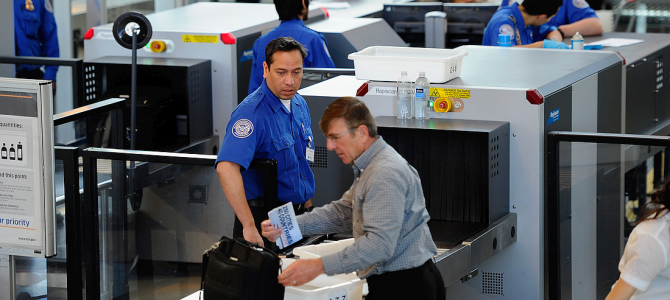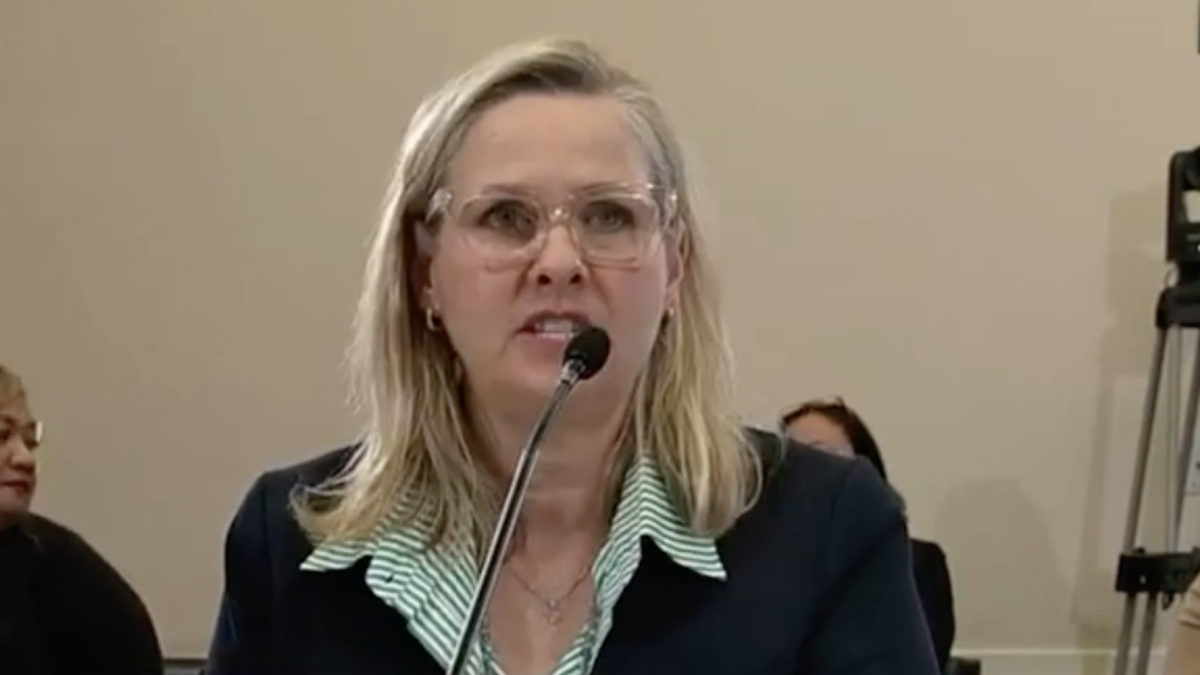
The Transportation Security Administration (TSA) has identified a massive new threat to domestic airline security. No, it’s not ISIS, Al Qaeda, or the Taliban.
It’s the dead battery on your smartphone.
Last week, TSA announced what it called “enhanced security measures” in which passengers will be required to power up their cell phones before boarding their flight. According to Department of Homeland Security Secretary Jeh Johnson, TSA has “assesse[d] the global threat environment and reevaluate[d] the measures we take to promote aviation security.”
Your cell phone is evidently part of a “global threat environment,” and so it must be turned on in order to prove that it’s a legitimate mobile device.
“Powerless devices will not be permitted onboard the aircraft,” the TSA now threatens. “The traveler [with a powerless device] may also undergo additional screening.” It seems the only truly powerless device in this situation is the traveler, who must yet again submit to the whims of an incompetent and unthinking bureaucracy.
“Powerless devices will not be permitted on board the aircraft.” Presumably, that means you’ll either have to miss your flight or throw your phone away. A few questions spring to mind as a result of this new announcement: is the TSA incapable of simply having a phone charger on hand with which to test a “powerless device?” And is the agency so criminally inept that it has no way to determine whether a “powerless device” is, in fact, an explosive device?
The first proposition would seem to be a simple one: all TSA checkpoints could maintain a handful of phone chargers as a both a courtesy and a vital means of assessing security threats. Or it could merely use a passenger’s AC adapter and plug it into one of the outlets in the security checkpoint. Openly doubtful about the idea of the TSA testing dead mobile devices to see if they’re legitimate, fellow Federalist contributor Gabriel Malor demanded, “With what? Who? How do we make foreign airport security comply? What cost?”
@seanmdav @danieljpayne Okay. You want to test dead devices. With what? Who? How do we make foreign airport security comply? What cost?
Gabriel Malor (@gabrielmalor) July 10, 2014
Well, you can buy a ten-device USB charger for about four bucks, so I guess that takes care of the “what” and “cost” questions. The issue of “who” would probably be “a TSA agent,” (i.e., the people who run the checkpoints). And while I’m not sure how we “make foreign airport security comply,” I’m sure the TSA could find a way, given how creative a department it’s proven itself to be. Not that TSA would really even need to invest a few dollars in a multi-phone charger — its agents could simply use the passenger’s charger and plug the phone for 10 seconds into one of the many outlets to be found at a security checkpoint. This would not be difficult. Indeed, in the grand scheme of TSA undertakings, it would hardly even merit an internal memo.
The TSA drops up to $200,000 on every one of its appropriately-spelled “Rapiscan” machines, so cost can’t be a legitimate issue (and what price can you put on security, right?). You can always find at least one TSA agent standing around a checkpoint doing nothing, so the manpower needed to power on a device for 10 seconds seems negligible. All told, this department has managed, over the last decade, to utterly transform an indispensable and widely-used aspect of American society — air travel — and still we are told that there is simply no way to charge your phone at the checkpoint. If it’s not charged, it’s either going into the trash or you’re not getting on the plane.
@seanmdav my laptop won’t work unless plugged in. Can’t afford new one right now. I’m military and have to travel. On your side.
Sarah Stevenson (@sarahrstevenson) July 10, 2014
The larger problem is that this new announcement suggests that TSA is simply unable to tell whether or not a phone or a laptop is a bomb. Government is not, as a rule, the place where the smart people go to work. A cursory examination of the average federal bureau or your local public school official lineup will suffice to prove it. And yet we’re asked to believe that the TSA, a department with a multibillion-dollar budget and a frightening amount of state-backed power, cannot somehow utilize some phone-scanning equipment through which you could slide your Galaxy and be on your way. Instead: “Powerless devices will not be permitted onboard the aircraft.” Don’t ask any questions.
Inept laziness is par for the course for this miserable agency, so perhaps we shouldn’t be too taken aback: a couple of years ago the House released a report that laid bare the grinding inefficiency in which the TSA is saturated. The agency, for instance, possessed nearly five hundred baggage screening devices locked up in storage, over a third of them for more than a year. Meanwhile, the bureaucracy had also socked away nearly 1,500 “Explosive Trace Detectors” in its massive storehouse in Dallas (the TSA “purchased more than we needed in order to get a discount”). The agency has repeatedly shown itself to be critically incompetent and incapable of running a cost-effective and efficient operation. To wit, instead of deploying expensive machines that could both lessen wait times and increase airport security, the boneheads in charge let millions of dollars worth of scanners and bomb sniffers gather dust in a Texas warehouse.
If the geniuses at TSA can’t move their own expensive equipment to their own checkpoints staffed by their own employees, can we really expect them to figure out whether or not your iPhone is an explosive device? It’s you, the passenger, upon which the burden has been place. Nobody in management could apparently be bothered. If a bajillion dollars worth of perfectly good equipment thrown in a storage shed is good enough for them, then a perfectly good smartphone in the trash should be good enough for you.
Anyhow, if you’re surprised by all this, it’s because you haven’t been paying attention. Placing the burden on you is what the TSA does, whether or not it’s throwing away your expensive electronic device or inflicting humiliating misery on you and your family.
TSA will single out breast cancer survivors for special humiliating pat-downs. It will bring a wheelchair-bound three-year-old to tears. It will strip-search an old woman and force her to remove her underwear. TSA agents will go into conniptions over a special formula for sick children, even when they’ve been warned ahead of time. The agency will force crippled children to walk on their own (the TSA is truly monstrous towards disabled kids). It will turn away a mute woman, whose inability to speak was due to a stroke. Its agents will throw hissy fits if someone films them (if you were engaged in such depravities, wouldn’t you?).
In spite of all these and countless more assaults on American liberties and dignities, the TSA has still allowed multiple major security breaches at numerous high-stakes airports. So the agency’s belligerent disregard of our constitutional liberties is not even very likely to keep you safe.
But for all its wanton antagonism and serial ineptness, TSA is still going to throw your phone or laptop away if it runs out of juice.
Musing over the prospect of “bins full of dead smartphones,” Kevin Drum predicted that the TSA might soon be facing “some serious public outrage” for its cell phone policy. I’m not particularly hopeful. American have put up with a stunning, demeaning and aggressive assault on our liberties from this dirty little department already, and when faced with the prospect of losing an expensive plane ticket and missing a wedding or a family reunion—along with incurring the wrath of the irascible and intransigent TSA—most people will likely clam up and meekly scurry away after their phone is trashed. You can guarantee the TSA’s betting on it, anyway, and if the past is any indication, they have excellent odds.
Daniel Payne is a Senior Contributor at The Federalist. He blogs at Trial of the Century. You can follow him on Twitter.









